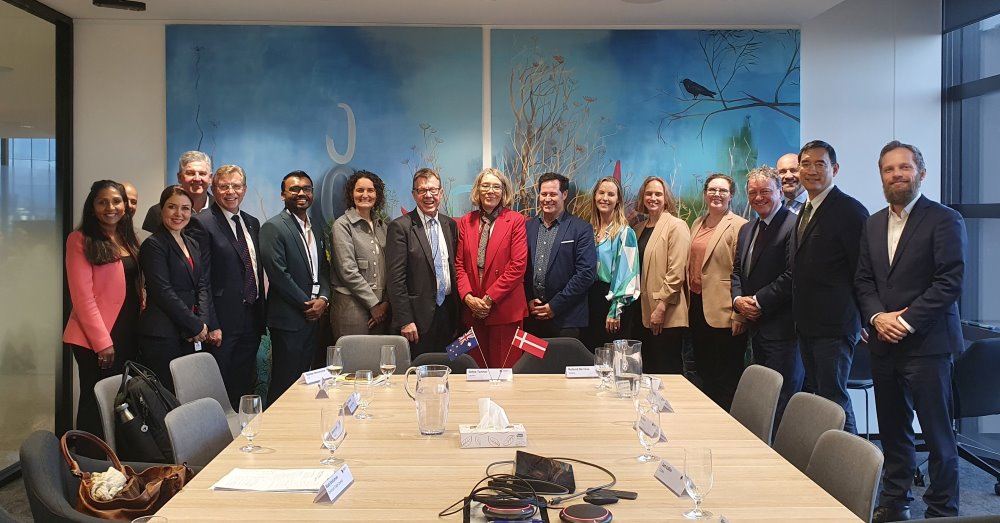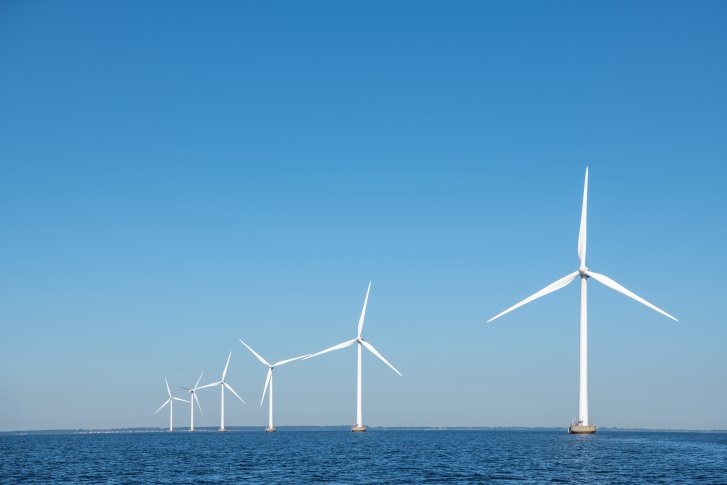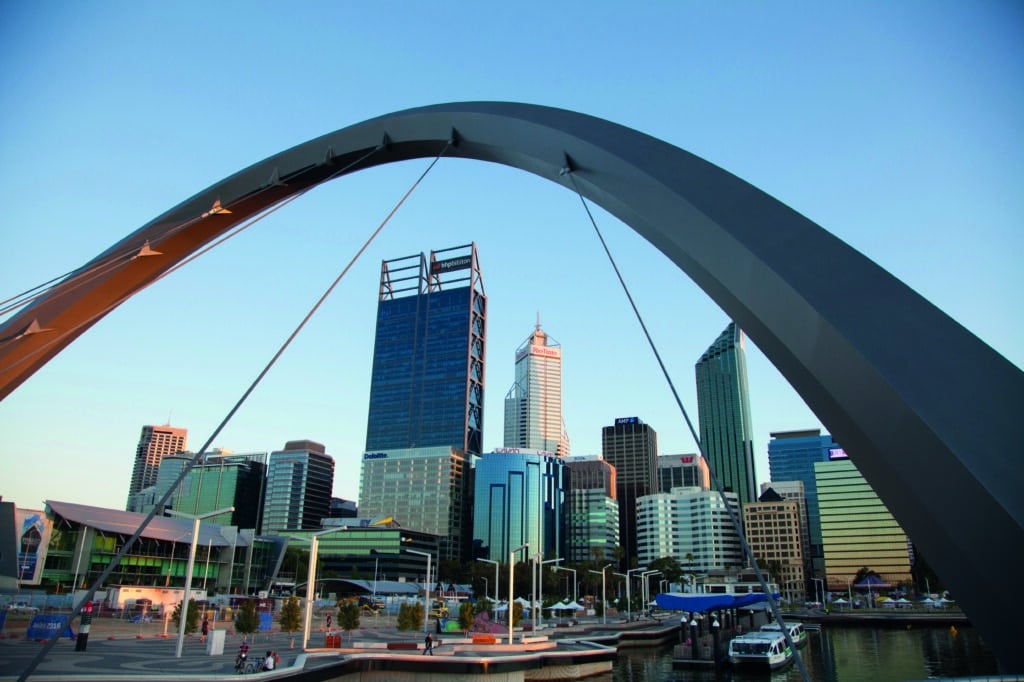Renewable energy companies and investors from Denmark are eyeing off opportunities in Western Australia, opening doors for industry to learn from its green expertise.

CCIWA hosted a roundtable with the Danish Ambassador to Australia, Pernille Dahler Kardel, and several Danish renewable energy companies and investors, and CCIWA Members from energy, mining, infrastructure and primary industries.
In July, CCIWA hosted a roundtable with the Danish Ambassador to Australia, Pernille Dahler Kardel, and a delegation of several Danish renewable energy companies and investors, along with CCIWA Members from energy, mining, infrastructure and primary industries to discuss trade and investment opportunities with WA.
The roundtable had three key objectives:
- Understand the dynamics and opportunities of the WA economy and connect the delegation with key stakeholders to collaborate on further greening those industries.
- Showcase the diversity of investment-ready projects across the State via the WA Investments* website for Danish investment.
- Encourage Danish companies to consider establishing a WA base as an ideal gateway to Asian markets and potentially utilise Australia’s free trade agreements.
“Denmark’s renewable energy industry is much more mature than ours, and our industry can learn from their experience to adopt and adapt it to suit our landscape,” says Michael Carter, Head of CCIWA’s International Trade Services.
“Similarly, we have some exciting green energy investment ready projects listed on WA Investments – a dedicated investment portal which is a collaboration between CCIWA and Invest and Trade Western Australia.”
Denmark is ranked second globally for energy system performance in 2023, according to an annual report by the World Economic Forum. Australia is ranked 24th.
Denmark’s renewable energy sector, particularly wind, is well-established and Kardel says it developed out of necessity when an oil crisis in 1972 highlighted the need to become more energy independent.
“Visionary people took that as an opportunity to develop green energy sources, wind in particular,” she says.
The development of the industry was supported by “attractive and dependable long-term support mechanisms, innovation support and a political willingness to invest in emerging power solutions on the basis of future market expectations”.
WA appeals to Denmark
Kardel says Denmark sees potential to develop its renewable industry in WA, particularly with its “abundance of resources, like-minded business environment and can-do attitude”.
“Denmark and Danish industry [are] looking to deploy our renewable solutions abroad, support green transition and create future jobs,” she says.
“In WA, we [can] learn from the giga-scale and momentum of especially the hydrogen strategy, and how WA is laying the tracks to put this enormous undertaking into movement.”

Copenhagen Energy’s wholly-owned subsidiary Midwest Offshore Wind is a project that aims to provide green electricity for WA homes and businesses. Image courtesy of Copenhagen Energy.
Denmark-based renewable energy projects developer Copenhagen Energy and consultant Lautec attended the roundtable and both showed strong interest in working closer with WA.
Copenhagen Energy has four WA offshore projects in development and this month it opened a Perth office. Lautec has a Melbourne presence.
“WA has a fantastic wind resource and this is what currently makes it attractive to offshore wind developers,” says Satya Tanner, Lautec Director and CEO – Australia.
“However, as consultants with expertise in offshore wind energy, our clients’ ability to build bankable projects depends on a number of factors, from good policy setting that gives certainty to investors and a clear route to market, through to a reliable and affordable supply chain.”
Joy Francis-Hayes, Copenhagen Energy Development Manager – Australia says WA is well-placed to have a significant role in global decarbonisation.
“Firstly, through the electrification of the grid and industry and then through the export of clean energy to other regions and countries that don’t have the abundant renewable resources that we [WA] have,” she says.
Conversely, Kardel says WA can also benefit from Denmark’s renewable energy expertise.
“Our developers and their investors, as well as original equipment suppliers and general supply chain, [are] well-adjusted to managing complexity, giga-scale, technology risk while attracting investors [and] making collaborations between the states a straight-forward opportunity,” she says.
“We believe the change is now inevitable, and as countries and continents are positioning [themselves] into the change of the energy-mix, Australia has a real chance at making itself be in front of yet another industry revolution.”
Denmark’s learnings from developing green energy projects
Copenhagen Energy – with projects in Denmark, Australia, The Philippines, Italy and Ireland – has faced many obstacles, such as navigating complex regulations, disruptions in global supply chains and finding skilled workers in a tight labour market.
“To overcome these challenges, we engage with key groups early, develop strong relationships, maintain transparent communication and proactively address concerns early,” says Francis-Hayes.
“Looking for local solutions is also key as it leverages local skills, knowledge, expertise and established supply chains. It also helps to build advocacy and support for the projects, which is essential when establishing a brand-new industry in an emerging market.”
The primary challenge for Lautec, says Tanner, was having a viable market to operate in.
“Danish authorities, and following on from that, other European countries, took a step-wise approach in building the market,” Tanner says.
“They began by giving the industry support, primarily in the form of feed-in tariffs and then adjusting that approach to result in the energy auctions that we see today. Good policy, rather than technology, is what drove the Danish success story with offshore wind.
“In a similar way, WA needs to form a strong alliance with the other Australian states to have a strategic and coordinated approach in what has become an intensely competitive global market.”
Overcoming barriers to drive investment
To realise investment opportunities, Kardel says de-risking investment is important.
“Once the investors and developers can begin to see certainty, they will attract the supply chain. There is a critical path at play, requiring WA to attract enough investment to ensure scale and supply chain certainty for the industry to obtain a critical mass,” she says.
For businesses to make their services and products more appealing to Danish markets and investors, Kardel encourages them to utilise the Danish Trade Council to engage with Danish businesses.
Francis-Hayes says when developing projects, Copenhagen Energy considers several factors to assess the viability of the project and location.
“These include resource quality, financial viability, regulatory and permitting systems, grid connection opportunities, supply chain, local expertise and capability, environmental factors, social impacts and other users of the area,” she says.
“We also conduct a full risk and mitigation assessment to develop an understanding of the potential risks and develop strategies to mitigate them.”
*WA Investments is a collaboration between Invest and Trade WA and CCIWA.
CCIWA’s International Trade Services helps businesses reduce the time, cost and risk of going global. Contact the team for a free consultation on (08) 9365 7620 or via [email protected].












